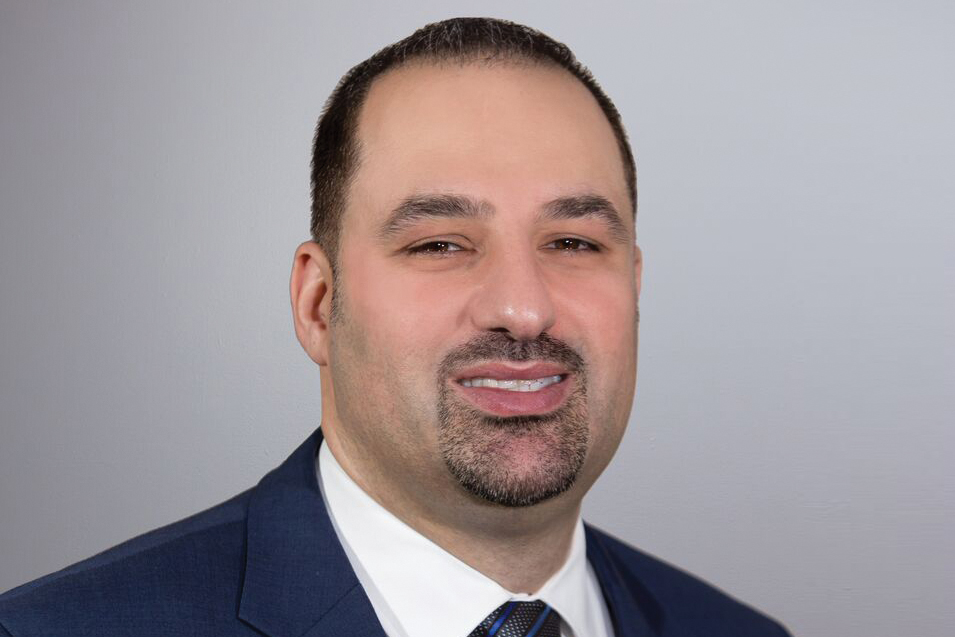Q&A With Strategy Investment Group

Mike Jordan takes a practical approach to profitable investing, focusing on strategy and diversification.
When Mike Jordan, founder and president of Detroit-based Strategy Investment Group thinks about his greatest successes, the first thing that springs to mind has nothing to do with real estate. It has to do with kidneys.
“My father is still around at 83 because I donated my kidney to him in 2011,” Jordan said. “I
did it for myself. I love having him around.”
That type of practical, forthright action is typical of Jordan, who has been active in real estate since 1999. He started Strategy Investment Group, a private investment company specializing in the purchase, renovation and resale of single-family residential (SFR) homes in Detroit and the surrounding suburbs, in 2001.
During that time, he has had plenty of chances to apply his no-nonsense approach to the industry and to develop a real estate investment philosophy that stresses diversification.
“I love real estate, but I know you have to diversify in order to really have the stability and security in your portfolio that most real estate investors are seeking,” Jordan said. “Fortunately, there are a lot of ways to diversify within this industry and keep the advantages that come with owning and optimizing real estate and real estate-related assets.”
REI-INK sat down with Jordan to talk about his investment strategy, his business philosophy and his longtime dedication to doing business in his hometown of Detroit, Michigan.
How have you diversified your own investments and those of your clients while staying in the real estate sector?
A lot of my clients are passive investors, so they really rely on Strategy Investment Group to present them with good investments that are reliable, predictable and will generate good returns. For that reason, we focus on acquiring properties at deep discounts, identifying the right strategy for that property during the acquisition process, and then immediately deploying the strategy to create a good asset for our investors.
This is a diverse process in itself, since we might renovate a property and then place a tenant, “wholetail” the property—which means fixing some very basic things and then reselling at a discount once again—or renovate the property for a long-term strategic hold of some other nature.
While we are known for our work on the SFR side of the business, we also purchase and renovate multifamily properties, purchase nonperforming mortgage notes and work with private lenders to help them deploy their capital in a very secure, predictable environment. To my way of thinking, you can have an extremely diverse, economically insulated portfolio without ever diverging significantly from this industry. In my case, Strategy Investment Group has also diversified by expanding, at our clients’ request, into property management as well via Strategy Properties.
As both a borrower and a lender, what do you think is the most important quality of a borrower in this industry?
I tend to think along the lines of “The 5 C’s of Lending.” If a borrower meets all five of these requirements to my satisfaction, then I would expect to qualify for the loan.
My 5 C’s of lending are:
- Character. Will the borrower pay?
- Capacity. Is the borrower able to pay?
- Cash Flow. Does the borrower have (or will the borrower have) cash flow to pay principal and interest when the project is done?
- Creditworthiness. Does the borrower have a history of paying?
- Collateral. How viable is the asset being used to secure the loan?
When I make loans, I also ask the sometimes uncomfortable, but very important, question: If the borrower gets hit by a bus, what happens to my capital? If the answer is unclear or unacceptable to me, then I don’t make the loan.
What do you wish every real estate investor knew before getting into a passive real estate investment?
I wish that more passive investors had a better understanding of the importance of capacity. Most real estate investing companies like mine have a certain amount of bandwidth. When that capacity is reached, we cannot do any more deals until we finish the ones we started.
A company that will admit it has a waiting list and tell you what types of properties it absolutely must acquire in order to make investors’ capital work as promised is a far better bet for a passive real estate investor than one that operates on the premise that the sky is the limit. In most cases, the limit is much lower than the company has indicated, and the passive investors pay the price when that too-ambitious attempt to scale backfires.
For example, if I tell you that I have just purchased 4,000 houses and that I plan to do so every month from here on out, you probably should not invest with me. There is not a solid reason to believe I have the capacity to handle that rate of acquisition because last month, and the month before that, and the month before that, and so on, I was doing between 20 and 50 deals a month. On the other hand, if I tell you I need a loan so I can acquire 25 more houses, then you absolutely can feel confident making that loan because you already know I have the capacity.
What is your strategy going into the next 12-18 months?
We are going to continue to concentrate on the city of Detroit and the suburban areas around Detroit. We have been in this market for years, and we expect it to keep expanding. This area of the country is extremely downturn resistant, especially in the rental sector, so we buy “defensively” by purchasing homes at steep discounts and then either wholetailing them or renovating them and placing tenants in them. These properties are in areas where people want to live, with good schools, low crime and high rental demand, so we feel confident that our strategy of persistent growth and having about 60 purchase agreements in the pipeline at any given time is the right one for Strategy and for our clients.














